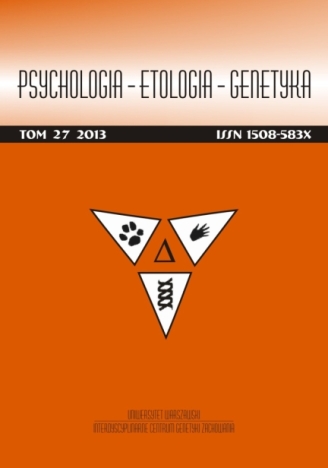Metapamięć: jakie są uwarunkowania sądów o własnej pamięci? Badania pilotażowe
Metamemory: What are the determinants of judgments about one’s own memory? A pilot study
Author(s): Barbara Gawda, Ewa Małgorzata SzepietowskaSubject(s): Psychology
Published by: Wydawnictwo Naukowe Scholar Sp. z o.o.
Summary/Abstract: The knowledge about one’s own memory (metamemory) is a topic of research of the various subdisciplines of psychology. There are taken into consideration the relations between metamemory and affective processes, personality, self-awareness, cognitive processes, and social factors. The aim of our study was to identify the determinants of knowledge of one’s own memory and the degree of the adequacy to the actual performance. The study included 50 adult participants without neuropsychiatric impairments. The general subjective assessment of one’s own memory (Memory Effectiveness Assessment Questionnaire), judgment of learning lists of words (JOL), the level of reminders of words and calibration (the degree of convergence of judgments and reminders of words), were the dependent variables. The intensity of affect (SUPIN), efficiency of semantic memory (verbal fluency) and executive functions (Ruff Figural Fluency Test – RFFT), as well as demographic variables were the independent variables. Higher self-assessment of general characteristics of the one’s own memory was positively associated with positive affect as personality trait. Judgment of learning was related to the level of reminders of words, and depended on the efficiency of semantic memory. None of these factors did not explain the calibration. The results confirm that the different forms of metamemory have different determinants. This finding should be applied in the diagnosis and treatment of metacognitive functions.
Journal: Psychologia-Etologia-Genetyka
- Issue Year: 2013
- Issue No: 27
- Page Range: 41-57
- Page Count: 17
- Language: Polish
- Content File-PDF

